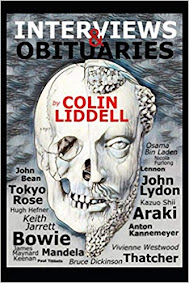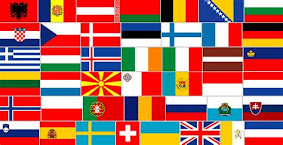by Duns Scotus
Doctor Johnson once famously refuted the nonsensical idealism of the Anglo-Irish cleric Bishop Berkeley by kicking a rock. This example is relevant when considering the over-intellectualization that many on the alternative right are drawn to in their attempts to challenge the hegemonic power of "Liberal Ideology," while also signalling their general intelligence and all-round superiority to their friends. It is certainly relevant to the contentious and arcanely expressed ideas of Alexandr Dugin.
The Russian intellectual's striving for a "Fourth Political Theory" is based on his abstracted view of the history of ideology, which, like Berkeley's idealism, seems to exist in a rarefied space separate from a robust dialogue with physical reality of the kind that Johnson favoured.
In his book The Fourth Political Theory, Dugin talks about the four political theories or Ideologies of Liberalism, Marxism, Fascism, and his own tender creation, which he is as yet too humble to call "Duginism."
The initial problem and starting point for Dugin is the so-called triumph of Liberalism over competing ideologies. This is a problem because it means we are now in a "uni-ideo" world, dominated by one ideology, which them becomes, like God, omnipotent and invisible. Worse still, it is an ideology that bolsters Western power.
It is an understatement to say that Dugin does not like Liberalism. At times his pronouncements against it take on the colour of an Old Testament prophet railing against the evils of Babylon. Ostensibly this animosity is driven by an understandable dislike of the soullessness of Modernity and the freakshow of Post-Modernity that it calls forth; but there is also a sense that it is because ideological unipolarity is considered unhealthy and evil in itself.
 |
| Books, like friends, should be few and well-chosen -- Dr. Samuel Johnson |
Another part of Dugin's critique of ideological unipolarity clearly stems from the Hegelian underpinnings of his intellectualism. For him and many other intellectuals history is mainly driven by dialectical struggle and by the battle of ideas and ideological systems.
The whole dynamic of The Fourth Political Theory is dialectical and Hegelian in form. The implication is that without this struggle, things stagnate and rot, and we are then left with Francis Fukuyama's liberal-democrat supermall built over the graveyard of history. While in geopolitical terms, unipolarity equals a US-dominated globalized world, intellectually it represents a lack of critique, a loss of consciousness, and the End of History – a state of deadly stagnation from which only the apocalyptic and Christ-like "Radical Subject" can save us.
As a note and a subject for another day, Dugin's concept of the Radical Subject has clear affinities with Walter Benjamin's messianic understanding of history expressed in his essays On the Concept of History and Critique of Violence.
For Dugin and those who have influenced him, a healthy ideological world is one that is dialectical, one where each ideology thrives on having a worthy opponent, without which it cannot truly live, as such his ideas occupy much of the same philosophical space that was explored by the luminaries of the Frankfurt School.
The problem, however, would come if the Fourth Political Theory (4PT) were to totally triumph. But, from the way that 4PT is structured and its rather reserved aura, this does not seem to be the intention. Liberalism, Communism, and Fascism, all came out of their cages roaring, as the world trembled at their feet. They fully intended to wipe the floor with their predecessors. The same can hardly be said about 4PT.
 |
| Il Duge |
On one level 4PT is clearly a philosophical formalization of the great Russian desire to reassert bi- or at least multi-polarity in the political realm. You could see it as essentially a half-hearted , updated, ideological rebooting of Tsarism-without-the-Tsar, bedecked in the totemically potent if somewhat abstruse jargon of Franco-German thought.
But there is one essential flaw with Dugin's whole effort: It is predicated on the triumph of Liberalism and its ideological success.
But Liberalism – at least in the ideological sense – never actually triumphed. America did! And America did not triumph because of Liberalism, or even its own merits. It triumphed mainly because of geography and the accretion of allies. This triumph was simply the continuation and amplification of the equally non-ideological triumph of Britain. If either Communism or Fascism had taken hold on the North American continent, or Liberalism in Germany and Russia, does anyone seriously doubt what the result of such an ideological struggle would have been? Would the states capable of mass producing tanks, mobilizing millions, and infusing them with fanaticism have lost to the ones capable of boosting profits, keeping taxation low, and holding jolly garden parties?
Dugin's main mistake – and it is one that renders most of his life's work essentially irrelevant – is that he conflates historical causes with ideological ones and ascribes historical effects to the latter. This is rather like a laboratory scientist taking his lab rats home with him and then to explaining the fact that his house cat ate one as the result of something that happened earlier in the laboratory.
While Liberalism continues to hold its geopolotical "lucky spot" it will remain reasonably strong, but strength based on luck breeds weakness – as we are beginning to see in modern America, which imported most of its real strength from Europe. The conditions which made this location so potent in the 19th and 20th centuries are rapidly changing. What the enemies of Liberalism and America need is not new intellectualism, a new ideology, and loads of abstruse jargon to chew on courtesy of Professor Dugin, but simply the skillful application of ideas that already exist.
That will create plenty of new dancing partners for everybody.
 |
| Troops from the Great Totalitarian Civil War of 1941-45. |
A version of this article was published at the old Alternative Right site on the 2nd of October, 2013. This is an updated and expanded version.































No comments:
Post a Comment
Your comment will appear after it has been checked for spam, trolling, and hate speech.